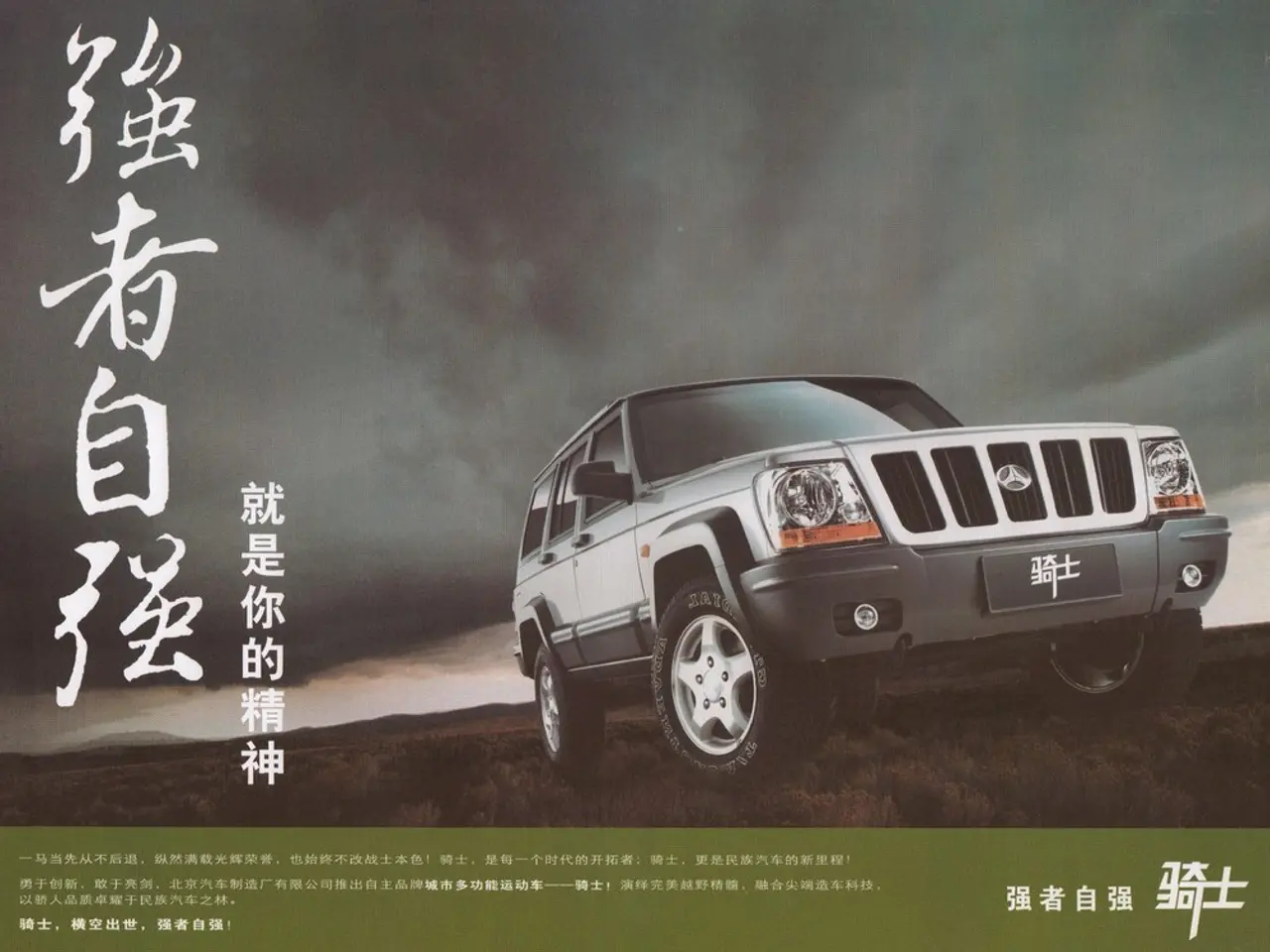Investigation
China's Electric Vehicle Sales See Strong Growth in Week 30 of 2025
Week 30 of 2025 has seen a robust growth in electric vehicle (EV) registrations in China, with many key brands reporting increased sales. The overall new energy vehicle (NEV) penetration in China's passenger vehicle market reached 50.1% in the first half of 2025, up 8.4 percentage points year-over-year, signalling a rapid growth in EV adoption.
BYD remains a dominant player, with its Seagull model ranking second in overall best-selling EVs. Tesla Model Y retains a strong position in third place, but is increasingly competing with Chinese brands. Nio, Xpeng, Li Auto, and Zeekr are among leading Chinese EV brands showing solid sales growth.
In Week 30, BYD registered 58,810 vehicles, up 14.4% from the previous week. BYD's growth is particularly noteworthy, with the brand reporting a 37% year-over-year increase in EV sales. Tesla registered 10,650 vehicles, a 7.6% increase from the previous week.
Nio Group registered about 5,000 vehicles, up 2% from the previous week. Nio saw a 29.8% increase to 3,245 vehicles, but down 49.91% from the same week last year. The Maybach competitor Nio ET9 sedan registered 45 units.
Xiaomi's EV offerings also saw strong growth, with Xiaomi reporting 7,500 registrations, a 4.2% weekly gain and up 92.31% from the same week last year. Xiaomi's SU7 sedan (including Ultra) registered 5,900 units, while Xiaomi YU7 SUV registered 1,600 units.
Leapmotor registered 34,850 vehicles in the first four weeks of July, Xpeng registered 27,370 vehicles, Xiaomi registered 26,270 vehicles, Li Auto registered 28,890 vehicles, Deepal registered 16,050 vehicles, and Zeekr registered 12,630 vehicles in China. Zeekr registered 3,300 vehicles, a 10% weekly increase and flat year-on-year. Huawei's Aito posted 10,500 registrations, up 10.5% from the previous week and flat year-on-year.
Firefly posted 230 registrations, down sharply by 66.2% from 680 the previous week. Denza registered 2,290 vehicles, up 9.0% week-on-week. Onvo registered 1,510 units, down 12.2% compared with the previous week, with no year-on-year comparison available. Avatr logged 1,900 registrations, a slight 3.1% dip from 1,960 a week earlier.
In the first four weeks of July, Nio registered 10,655 vehicles in China, and Avatr registered 7,360 vehicles in China. The emerging newer brands like Leapmotor, Xiaomi, and Aito have a visible impact but at a smaller scale compared to giants BYD, Tesla, and Nio. Brands like Deepal, Onvo, and Firefly are less prominent in public data or show nascent growth stages with limited detailed sales figures publicly available as of H1 2025.
Plug-in hybrid sales showed stagnation or decline year-over-year despite their earlier rapid rise, contrasting with BEVs which continue strong expansion. For example, BYD sold 177,890 EVs in one recent month, a 36.8% increase year-over-year but a 14% decrease from the prior month, illustrating some sales fluctuation within the growth trend.
Tesla’s resilience remains notable but it faces tougher competition in China’s EV market from well-capitalized domestic brands, which now dominate the top sales rankings except for Tesla's Model Y. Nio and Li Auto continue to grow with innovative electric models, while Xpeng also reports expanding sales.
In summary, weekly EV sales in China for these major brands in 2025 show a robust upward trajectory year-over-year, especially for BEVs. BYD leads with strong growth, Tesla remains competitive but relatively stable, and new domestic brands like Xiaomi and Leapmotor are increasingly entering the market. PHEVs are declining in share, accelerating the shift to pure electric vehicles. Precise current weekly sales numbers for each brand are not always publicly available, but all evidence points to continuing growth and intensifying competition among Chinese EV makers compared to the same period last year.
The Finance and Technology industries are closely observing the expansion of China's Electric Vehicle (EV) market, with notable growth in sales leading to increased competition among brands such as BYD, Tesla, Nio, Xpeng, Li Auto, and Zeekr. The Energy sector also plays a vital role, as the shift towards BEVs (Battery Electric Vehicles) and the decline in PHEVs (Plug-in Hybrid Electric Vehicles) emphasizes the importance of renewable energy sources to power these vehicles.




